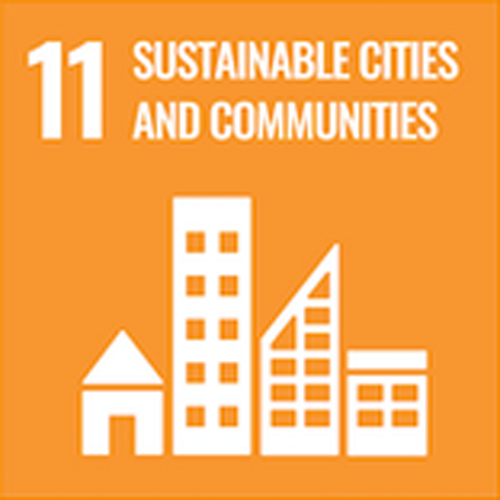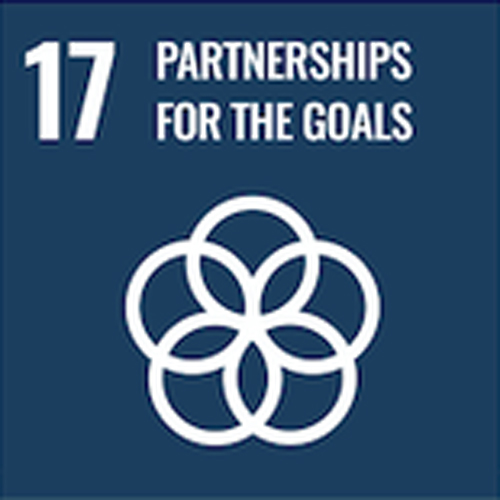Our 2023 panellists covered the latest research on decarbonising flight
Globally, emissions from air travel account for 3% of all greenhouse gas emissions, which must be addressed in line with climate change advice from the Intergovernmental Panel on Climate Change (IPCC). This webinar series examined the progress that is being made by science, policy, industry, and technology to support decarbonisation of the aviation sector.
![]()
Aviation Reimagined is an annual webinar series featuring industry leaders, policymakers and researchers sharing their insights about a transition to a low-carbon and climate ready future for the aviation sector. 2023 marked the fourth consecutive year running this successful series, with new speakers and contributors delivering innovative insights from around the world.
The webinar series was held every Thursday in October. During each session, we heard from multiple subject matter experts and participated in a 20-minute question and answer session with the panel.
Reimagining Aviation was facilitated by Dr Emma Whittlesea from Griffith's Climate Ready Initiative, Professor Tim Ryley from Griffith Aviation and Professor Susanne Becken and Dr Bojana Spasojevic from Griffith’s Institute for Tourism.
We invite you to watch the recordings of our free sessions investigating the latest developments towards decarbonising flight. The program and speakers for each session are detailed below.
Session 1: Science matters - debunking some myths
Thursday 5 October, 3-4:30 pm AEST
Facilitated by Professor James Higham and Dr Emma Whittlesea
This first webinar will establish a solid base for some of the key issues that aviation is facing in relation to decarbonisation and action necessary to adapt to climate risks. It will tackle some of the big areas of controversy, and bring scientific evidence to the debate around topics such as contrails, carbon offsets and biofuels, and climate risks for aviation.
Turbulence Ahead! Air travel in a warmer world
Professor Paul Williams, Reading University, UK
This presentation will summarise the impacts of climate change on aviation. These impacts include coastal airport flooding, take-off weight restrictions, more extreme weather, modified flight times, and stronger turbulence.
The science of aviation’s effects on climate
Professor David S. Lee, Manchester Metropolitan University, UK
This presentation will present the latest authoritative science on both CO2 and non-CO2 effects from aviation and their contribution to global warming. The particular issue of contrail generation will be covered as well to give the audience a sense of ‘confidence’ in the scientific certainty of these issues.
Can we offset aviation emissions by planting trees?
Professor Brendan Mackey, Griffith University, Australia
Both compliance and voluntary carbon markets sell credits generated from planting trees. Many national governments and organisations include such offsets in their Net Zero Emission pledges. However, if we consider the global carbon cycle and land use factors, the efficacy, integrity and sustainability of this mitigation strategy are called into question.
Session 2: Transformative policy - raising the bar for aviation decarbonisation
Thursday 12 October, 3-4:30 pm AEST
Facilitated by Dr Emma Whittlesea and Professor Tim Ryley
Determining and mobilising effective policy and governance mechanisms to support decarbonisation and increased resilience of the aviation sector is challenging, not least because aviation strategies do not necessarily consider decarbonisation, and existing energy and broader transport strategies do not necessarily consider the aviation sector. This limits opportunities and can be counterproductive. This session will explore existing and emerging policy approaches, programs and mechanisms that are seeding the transformation – and what we need to ramp up opportunity and impact.
A greener horizon: Europe’s vision for climate-neutral aviation
Rosalinde van der Vlies, Director of Clean Planet, Directorate-General for Research and Innovation, European Commission, Belgium
Delving into European policies and programs that facilitate research, innovation and the development of disruptive aircraft technologies for clean aviation, in support of the European Green Deal.
New Zealand government initiatives for decarbonising aviation
Dr Maile Giffin, Strategic Partnership Manager, Innovative Partnerships, & Cindy Park, Gas and Fuel Policy, Ministry of Business, Innovation and Employment, New Zealand
The Ministry of Business Innovation and Employment is one of the largest regulatory departments in New Zealand and will present on the governments initiatives to address the decarbonisation of the aviation industry. This includes Sustainable Aviation Aotearoa that was launched in November 2022 as a private/public partnership to explore next generation aircraft, sustainable aviation fuels and regulatory requirements as three key work-streams.
US federal and state incentive policies for SAF airport fueling hubs
Graham Noyes, Executive Director, Low Carbon Fuels Coalition, California, USA
Over the past five years, US Sustainable Aviation Fuel (SAF) policy has expanded and evolved to include a mix of federal and state incentives that can be stacked to reduce the price premium for SAF relative to conventional jet fuel. This presentation will examine the policies underlying the development of several airports in the US that have become internationally-recognised SAF fueling hubs.
Session 3: Climate-ready aviation – industry perspectives and practice
Thursday 19 October, 3-4:30 pm AEST
Facilitated by Professor Susanne Becken and Dr Bojana Spasojevic
Science, technology, and policies will help us achieve a carbon-neutral aviation sector by 2050, but the role of industry in activating the change is critical. The aviation eco-system involves numerous stakeholders, including airports, airlines and air traffic management demonstrating leadership and innovation for the future. This session will examine current best practices, challenges, opportunities and what is needed for the industry to succeed.
Boeing’s role in the First Movers Coalition
Robert Boyd, Regional Lead, Global Sustainability Policy and Partnerships at Boeing; and Aviation Champion for the World Economic Forum First Movers Coalition, Switzerland
The World Economic Forum, First Movers Coalition is a demand driven initiative aiming to stimulate emerging technologies and the production of Sustainable Aviation Fuel with a life cycle emissions reduction of 85% or greater. First movers are necessary to bring forward technology not yet commercial reality. What are the details of this program and how does this align with the aviation sectors global commitments for decarbonization?
Building a sustainable airport city
Jessica Rudd, Head of Sustainability at Brisbane Airport Corporation, Australia
BNE is more than just an airport. We are a gateway to Queensland, a thriving economic hub employing 24,000 people across a 2-700-hectare precinct and a leader in sustainability. Discover how Brisbane Airport is building a resilient and sustainable airport city and actively contributing to decarbonising aviation through setting ambitious sustainability targets, driving innovation and efficiency and proactively partnering with industry.
Environment and sustainability approach at Airservices Australia
Nik Mungilwar, Senior Sustainability Specialist, Airservices Australia
Airservices Australia insights into the challenges and opportunities of delivering Net Zero by 2050 targets. Airservices Australia is a government-owned organisation responsible for the safety of 11 per cent of the world’s airspace, and the safe and efficient management of Australia's skies and aviation rescue firefighting services at Australia's airports.
Session 4: Technological innovation and advancements
Thursday 26 October, 3–4:30 pm AEST
Facilitated by Professors Tim Ryley and Susanne Becken
Technology innovation and advancement is a key part of decarbonising the aviation sector and increasing resilience. It will include new aircraft and engine/powertrain designs, renewable energy and fuels, air traffic management innovations, rethinking airport infrastructure and ground support efficiencies, and the emerging role of AI. This session will explore the range of opportunities from retrofitting existing infrastructure and aircraft to clean sheet designs and will examine technology readiness aligned to the 2050 timeframe to net-zero.
Aviation technology for zero climate impact
Professor Simon Weeks, CEO & Founder Simon Weeks Consultancy, UK
Alternative fuels such as Sustainable Aviation Fuels (SAF) and hydrogen are under development to reduce aviation CO2 emissions. This presentation explores some of the technological advances behind such fuels that may be used to mitigate climate impact and the broader industry issues that affect the speed of their implementation.
Pathways of decarbonisation for the aviation sector
Stephen Forshaw, Airbus Chief Representative and Head of Country, Australia and New Zealand
This presentation will cover the different initiatives in terms of technology pathways being developed, ecosystems approach being implemented and partnerships being progressed as Airbus works towards its net zero carbon emissions objective by 2050.
Using Big Data and AI to improve operations and reduce aviation’s CO2 footprint
Alexandre Feray, CEO & Founder Open Airlines, France
Technology innovation is a key part of decarbonising the aviation sector. This includes major developments in emerging areas such as Big Data and Artificial Intelligence (AI). This presentation will be a discussion on how innovative digital technology, such as Big Data and AI, can optimize operations and reduce aviation CO2 emissions today and in the future.
Meet the 2023 Presenters
Dr Emma Whittlesea
Dr Emma Whittlesea was previously the Program Director for Griffith’s Climate Ready Initiative and is now the Head of Partnerships at Stralis Aircraft. She has over 25 years’ experience working with communities and public, private, and not-for-profit sectors within the UK, Europe, and Australia to advance sustainability. Her professional focus is to enable climate action through effective partnerships and collaborative projects, with a particular interest in the advancement of zero emission travel.
Professor Tim Ryley
Tim Ryley is Professor of Aviation, within the School of Engineering and Built Environment at Griffith University. With over twenty-five years of transport research experience, his current research includes environmental issues associated with aviation, such as the relationship between aviation and climate change. Tim’s research is typically inter-disciplinary and industry-linked; he has developed research and consultancy collaborations with many aviation industry stakeholders, including airport, airlines and Government bodies.
Professor Susanne Becken
Susanne Becken is a Professor of Sustainable Tourism at Griffith University in Australia and the Principal Science Investment Advisor (Visitor) in the Department of Conservation, New Zealand. She has published over 120 articles on sustainable tourism, climate change and tourism resource use, and contributes to a wide range of national and international sustainable tourism initiatives, including through her role with Travalyst, Air New Zealand, EarthCheck Research Institute, and the New Zealand Tourism Data Leadership Group.
Dr Bojana Spasojevic
Dr Bojana Spasojevic is an interdisciplinary tourism and air transport management researcher. Her research uses stakeholder engagement theory as a problem-solving framework. Apart from her main research areas – stakeholder engagement and air route development, Spasojevic's research expertise includes passenger/tourist behaviour, travel confidence and air travel emission.
Distinguished Professor James Higham
James Higham is a Professor of Sustainable Tourism at Griffith University in Australia and Honorary Professor at the University of Otago, New Zealand. He is the founding director of the Otago Tourism Policy School (2019-2023) and former co-editor of the Journal of Sustainable Tourism (2014-2021). He has authored or co/edited 15 booked and published over one hundred journal articles throughout his academic career to date. In 2022 he was awarded the position of Ahorangi Taiea Distinguished Professor, at the University of Otago.
Professor Paul Williams
Paul Williams is Professor of Atmospheric Science at the University of Reading, UK. Educated in physics to PhD level at Oxford, he specialises in atmospheric turbulence, jet streams, numerical modelling, and climate change, with a focus on weather-sensitive applications including aviation. He has published two books and over 70 scientific papers in leading journals. He is a Fellow of the Institute of Physics and the Royal Meteorological Society.
Professor David Lee
David Lee is Professor of Atmospheric Science and leader of the ‘Aviation and Climate Research Group’ at Manchester Metropolitan University, UK. His background is in atmospheric science, with a specialization in climate science. David has participated as a Lead Author for the Intergovernmental Panel on Climate Change since the late 1990s and contributed to assessments of WMO/UNEP Emissions Gap Reports, and co-leads the Impacts and Science Group of the International Civil Aviation Organization.
Professor Brendan Mackey
Professor Brendan Mackey is Director of the Griffith Climate Action Beacon, Griffith Climate Change Response Program, and the National Climate Change Adaptation Research Facility at Griffith University. He has a PhD in ecology from The Australian National University. The primary foci of Professor Mackey's current research are: * climate change adaptation and mitigation * science-based policy for climate change, conservation and sustainable development * the application of decision support systems to environmental problems.
Rosalinde van der Vlies
Rosalinde is Director of the Clean Planet Directorate in the European Commission’s, Directorate-General for Research and Innovation and Deputy Mission Manager of the Climate-Neutral and Smart Cities Mission. Before her appointment, Ms. van der Vlies was the Head of Coordination and Interinstitutional Relations Unit, and acting Head of Communication and Citizens Unit.
Dr Maile Giffin
Maile is a Strategic Partnership Manager within the Innovative Partnerships team at the Ministry of Business, Innovation and Employment (MBIE). Sustainable Aviation comes under both the team’s Cleantech portfolio and Aerospace strategy. Maile has been largely focussed on both hydrogen and sustainable aviation fuels and their role to play in helping to achieve a sustainable aviation industry.
Cindy Park
Cindy is a Graduate Policy Advisor within the Gas and Fuel Markets Policy team at the Ministry of Business, Innovation and Employment (MBIE). Cindy has been supporting the development of a sustainable aviation fuels mandate in New Zealand, under the team's Energy and Resources portfolio. Prior to this role, Cindy graduated from the University of Auckland with a Bachelors of Health Sciences in Population Health.
Graham Noyes
Graham Noyes’ legal practice is devoted to fuel and carbon law. Graham represents the Sustainable Aviation Fuels (SAF) Producer Group which includes many of the world’s leading SAF companies including Fulcrum BioEnergy, Gevo, LanzaJet, Velocys, and World Energy. Graham previously represented many of these same SAF Producers in the coalition effort with A4A, United Airlines and SFO Airport that secured California Air Resources Board approval for the crediting of SAF in California’s Low Carbon Fuel Standard (LCFS).
Robert Boyd
Robert Boyd joined Boeing International in August 2022 as Regional Lead, Global Sustainability Policy and Partnerships. His role includes representing aviation as Sector Champion, for the World Economic Forum, First Movers Coalition. Prior to joining Boeing, Robert spent nearly 10 years at the International Air Transport Association, ultimately as Assistant Director, Energy Transition and Policy.
Jessica Rudd
Jessica is an experienced sustainability professional who is passionate about embedding sustainability into an organisations activities and culture. As the Head of Sustainability at Brisbane Airport Corporation, Jess is responsible for developing BAC’s long-term sustainability strategy and initiatives which focus on decarbonisation, circular economy, climate change and social sustainability.
Nik Mungilwar
Nik is the Senior Sustainability Specialist at Airservices Australia. He supports and manages the Sustainability portfolio, responsible for delivery of the organisational Sustainability Strategy including climate impacts and resilience planning. He is based in the Safety Security and Environment directorate, and systematically works on embedding sustainability in all organisational activities.
Professor Simon Weeks
Professor Simon Weeks has just launched his own consultancy business. He was CTO for the Aerospace Technology Institute, responsible for the UK’s aerospace technology strategy and £5Bn+ programme. Previously, Simon held senior engineering & technology roles with Rolls-Royce, including Global Head of Aerospace R&T, Director of Engineering Operations for Aero Engine Controls and Technical Director for Eurojet, leading development of the EJ200 engine for Eurofighter Typhoon.
Stephen Forshaw
Stephen joined Airbus in 2022 as Chief Representative and Head of Country, Australia, New Zealand and the Pacific. He is a member of the Airbus Asia Pacific Leadership Team and is responsible for representing Airbus at a corporate level, covering all the business divisions: Commercial, Helicopters, Defence & Space.
Alexandre Feray
Alexandre Feray is the founder and CEO of OpenAirlines, a French software company that developed SkyBreathe, the leading eco-flying solution based on Big Data and AI. SkyBreathe is used by 58 airlines worldwide and helped save 1M tons of CO2 in 2022. Alexandre Feray has an MSc in Computer Science from Ecole Centrale Paris and started his career at IBM Research in NY, USA.
Replay our 2022 webinar series on Aviation Reimagined
Committed to the Sustainable Development Goals



